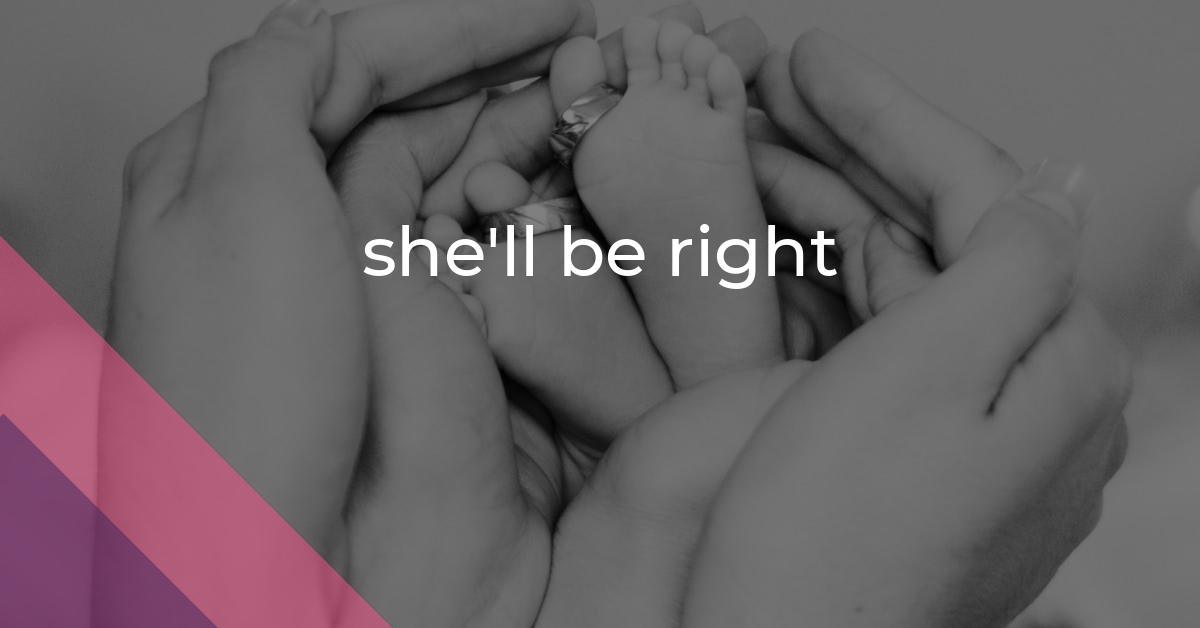she’ll be right: Idiom Meaning and Origin
What does ‘she'll be right’ mean?
The idiom "she'll be right" means that everything will be fine or that there is no need to worry. It is commonly used in Australian and New Zealand English to convey a sense of optimism or reassurance in the face of uncertainty or adversity.

Idiom Explorer
The idiom "to be sure" means to have complete certainty or confidence in something or someone.
The idiom "the coast is clear" means that it is safe to proceed without any danger or obstacles. It is often used to indicate that a situation or location is free from any threats or interference.
The idiom "that's your lot" means that something has come to an end or there is nothing more to be expected or offered. It can be used to express that there is no more of something or that there is no further opportunity or possibility.
The idiom "that's what she said" is a humorous phrase used to draw attention to statements that can be interpreted with a sexual innuendo or double entendre. It can be seen as a form of wordplay or a way to add a humorous twist to a conversation, often used in a lighthearted or joking manner.
"That's the ticket" means that something is just right or exactly what is needed. It can also express approval or agreement with a suggestion or idea.
The idiom "that's all she wrote" means that something is finished or ended, often with a negative or disappointing outcome. It suggests that there is nothing else to be said or done about a situation.
The idiom "tell you the truth" is a way to emphasize honesty in a statement, suggesting that the speaker is about to share their true thoughts or feelings on a matter. It signifies a candid and sincere expression.
The idiom "take someone's word for it" means to believe or trust what someone says without requiring further proof or evidence.
An idiom meaning that one has to accept a situation or offer as it is, without the possibility of negotiation or change.
FAIL
The idiom "she'll be right" is a common expression in Australian English, often used to convey the attitude of optimism or reassurance that things will work out fine in the end. It is primarily used in everyday conversations and informal contexts, rather than in formal writing or professional settings.
The phrase "she'll be right" is made up of three components: "she" refers to an unspecified female subject, "will be" is the future tense of the verb "to be," and "right" means correct or satisfactory. When combined, the idiom suggests a belief in the eventual resolution or positive outcome of a given situation, regardless of current uncertainties or challenges.
The origins of this idiom can be traced back to the unique colloquialisms and humor of Australian English. It reflects the laid-back and optimistic attitude characteristic of Australian culture, where individuals often approach life's challenges in a relaxed and easygoing manner. The phrase reflects a belief in the resilience and resourcefulness of individuals in navigating difficulties, implying that problems will be resolved or overcome in due course.
While "she'll be right" originated in Australia, it has gained some recognition and understanding beyond its borders due to globalization and the influence of Australian media. However, it remains most commonly used and understood within Australian English-speaking communities.
Alongside its literal interpretation, "she'll be right" can also take on a broader metaphorical meaning. It serves as a reminder to not get overly concerned or worried about a situation, suggesting that there is no need to panic or engage in stress-inducing behaviors. Instead, it encourages a more relaxed and optimistic approach, trusting that things will work out in the end.
However, it's important to note that like any idiom, the meaning and usage of "she'll be right" can vary depending on the context and the speaker's intent. While it is generally used in a positive manner, it is possible for it to be employed sarcastically or dismissively, implying a lack of concern or urgency that may not be appropriate in certain situations.
Another related idiom is "it's all good." This expression is often used to reassure someone that everything is fine or there are no problems to worry about. It shares a similar sentiment of optimism and reassurance with "she'll be right," emphasizing a positive outlook and belief in positive outcomes.
Similarly, the phrase "all good" is a shortened version of "it's all good" and carries the same meaning. It is often used in informal conversations to convey that everything is in order or there is no cause for concern.
Another related idiom is "I'll be bound," which is used to express a high degree of certainty or confidence in a statement. It is often used when someone is confident that something will happen or when they are making an assertion based on strong evidence or personal knowledge. This idiom shares the element of certainty and belief in a positive outcome with "she'll be right."
Lastly, the phrase "sure enough" is often used to confirm that something happened exactly as expected or predicted. It is used to emphasize that a prediction or expectation turned out to be true, reinforcing the belief in positive outcomes that is inherent in "she'll be right."
"she'll be right" is an idiom rooted in Australian English that expresses an attitude of optimism and reassurance. It embodies the laid-back nature and belief in positive outcomes that are characteristic of Australian culture. While its usage has gained some recognition beyond Australia, it remains most prevalent and understood within Australian English-speaking communities. Whether used literally or metaphorically, it serves as a reminder to approach challenging situations with confidence and trust in the eventual resolution.
Example usage
Examples of how the idiom "she'll be right" can be used in a sentence:
- Don't worry about the bike, it just needs a little fixing and she'll be right.
- We might be running late, but if we hurry, we'll catch the train and she'll be right.
- He's a talented musician, so even if he hasn't rehearsed much, once he starts playing, she'll be right.
The idiom "she'll be right" is often used in Australian and New Zealand English to express an optimistic attitude towards a situation or to assure that everything will work out fine. It can be used to convey confidence in overcoming difficulties or to downplay concerns. The phrase is commonly used in casual conversations and can relate to various aspects of life, such as mechanical repairs, time constraints, or performance.
More "Optimism" idioms



